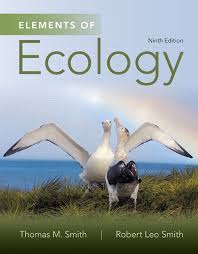Berlani
Gallardo
Hackworth
Geary
Norris
Peters
Schrey
Svensson

| Roberta
Berlani |
Leticia
Gallardo |
Cheryl
Hackworth |
Michelle
Geary |
Nathan
Norris |
Christine
Peters |
Molly
Schrey |
Peter
Svensson |
| Study Group Contact Information |
| Elements of Ecology |
Course Information |
 |
This is a Non-majors course. I assume no previous biological expertise. I do, however, assume a will to learn, and a willingness to work.
Introduction
to Ecology and Wildlife is a 3.0 unit course that
satisfies the natural science requirement for the AA
degree. It is also transferable to Lectures Lectures are 2 hours and 5 minutes
long They provide the core information of the course.
While some information presented supports relevant
material in Smith and Smith, other topics are not from
the textbook but will appear in the exam. You should
attend all the lectures.
|
|
|
|
|
|
|
|
|
|
|
|
|
|
|
|
|
"Within 24 hours, you will forget at least half of what was said in the lecture"
(Ace Center St. Charles Community College).
How to Take Effective Notes
One of the stated Student Learning Outcomes for this section is to focus on how you take notes in lecture and to work on how to improve the quality of lecture notes you take. Time spent on this skill will reap rewards not only in this class but in all other classes.
The West Valley College Tutorial Center has resources that exemplify how notes should be taken in lecture and how to write up these notes making them into valuable learning tools. There is some degree of overlap between different sources (which suggests that the points repeated are worth repeating....), but notice that they all feature the same basic routine:
1. Come prepared
2. Take notes using a system that you
understand
3. Write up your notes adding in details and
filling in blanks within 24 hours of lecture..
St.
Charles
Community
College
Cornell
Note
Taking
Method
Cornell
Note
Taking
Rubric
Lecture
Note
Guide
featuring examples and rubric
If you would like to be a little greener this year become
informed, and be inspired at:
A Little
Greener
|
|
|
|
| Course Handouts .doc |
| Greensheet |
| Lecture Syllabus |
Many of the handouts that you will recieve during the
semester are available here to download in PDF format. Simply
select the item you are interested in and click on the PDF link
(you will need Adobe Reader to view and print these documents -
get Adobe Reader here
(free download).
| Internet Resources Chapter by Chapter |
| Labs |
| Lab 1 Data Gathering and Analysis |
| Lab 2 Campus Naturewalk |
| Lab 3 Fungi and Lichen |
| Lab 4 Classification |
| Lab 5 Natural Selection |
| Lab 6 Plant Identification |
| Lab 7 Estimating Population Size |
| Lab 8 Yellowstone |
| Lab 9 Bird Identification |
| Lab 10 Community Ecology |
| Lab 11 Ecosystem Processes |
| Exam Study Guides |
| Midterm 1 Study Guide |
| Midterm 2 Study Guide |
|
|
| Final Part 1 |
|
|
| Campus Species Inventory Instructions |
| Species Inventory Form |
| West Valley College List of Species |
|
|
| Lecture 1 Introduction to Ecology |
| Lecture 2 The Nature of Ecology |
| Lecture 3 Climate and Biomes |
| Lecture 4 The Aquatic Environment |
| The Terrestrial Environment |
| Lecture 5 Ecosystem Energetics |
| Lecture 6 Decomposition and Nutrient Cycling |
| Lecture 7 Introduction to Plants |
| Lecture 8 Plant Adaptations to the Environment |
| Lecture 9 Natural Selection |
| Lecture 10 Animal Adaptations to the Environment |
| Lecture 11 Animals of California |
| Lecture 12 Properties of Populations |
| Lecture 13 Population Growth/ Metapopulations Ecological Succession |
| Lecture 14 Intraspecific Competition |
| Lecture 15 Interspecific Competition |
| Lecture 16 Predation |
| Lecture 17 Parasitism and Mutualism |
| Lecture 18 Community Ecology |
| Lecture 19 Ecological Succession |